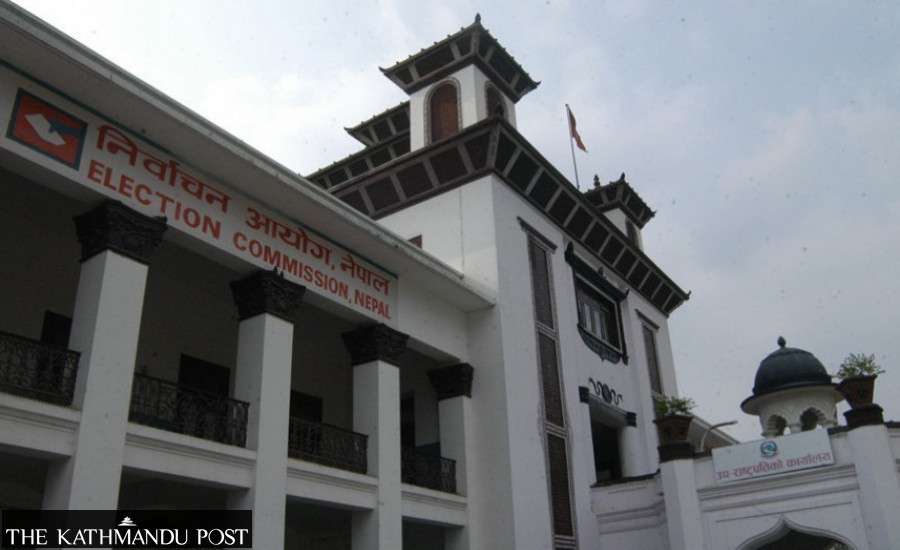National
Parties widely used children in campaigns as poll body remained ineffective
Poll body failed to crack down on parties and stood as a mere spectator, observers say.
Binod Ghimire
After intense lobbying by various non-governmental agencies and stakeholders, the government had, on May 25, 2011, declared the academic sector as a zone of peace and barred all kinds of political activities in academic institutions.
Around a dozen major and fringe political parties also made a joint commitment to keeping schools and colleges and children free from political activities and not hampering the teaching-learning process.
There are legal protections against the use of children in political activities and provisions of fines against those who use them in political activities. However, children were used massively in the recent local elections as the Election Commission failed to crack down on parties.
A monitoring report by Children as Zone of Peace National Campaign, an umbrella body of 47 different organisations working on advocacy of child rights, shows 115 incidents of use of children in political campaigning and victory rallies.
The main opposition CPN-UML was ahead in the use of children in the publicity campaigns or in victory rallies with 42 such incidents.
The ruling Nepali Congress used them in 35 events while the CPN (Unified Socialist) was found using children in 20 and the CPN (Maoist Centre) in 15 incidents. Apart from the use of children in election campaigns, the parties also used school buses in publicity campaigns and conducted their activities in schools and academic institutions.
“Though we had the report of more cases, we filed complaints in the Election Commission with the concrete evidence of 115 incidents,” Rajesh Sharma, chairperson of the campaign, told the Post. “However, except seeking clarification in two incidents, the commission took no other steps for the action.”
He said the commission failed to implement the election code of conduct.
Clause 4 (g) of the election code of conduct says children below 18 cannot be used in election rallies and publicity campaigns.
Similarly, Act Relating to Children also bars use of children in any political activities including in election rallies. Section 72 (3b) of the Act has a provision of fines up to Rs 75,000 and imprisonment up to three years.
Similarly, the parties in their election manifestos have announced that they won’t use children in rallies and other political activities.
“However, the parties neither followed the legal provisions nor implemented their own commitments,” said Tarak Dhital, former chief of the Central Child Welfare Board. “Political parties lack sensitivity in children’s issues.”
Those involved in the advocacy of child rights say the Election Commission was happy in just issuing the statements and seeking clarification.
Following pressure from the advocacy groups, the commission on March 1 wrote to the Prime Minister’s Office recommending that it bar all kinds of political activities on the premises of schools, colleges, and government institutions.
The commission has urged the government to stop the possible use of land, property and vehicles among other resources of academic institutions, and government and public institutions by political parties or candidates, read the statement.
Sharma, the chairperson of the campaign, said apart from issuing the statement, the commission had committed to using schools only for setting up polling stations and booths. It had said it won’t even use schools for vote counting.
“However, schools were occupied for over a week in the vote counts,” he said. “While the parties are to be blamed for use of children in political campaigns and using the academic institutions for their activities, the commission is equally responsible for failing to take legal actions. We had provided proof in all 115 incidents but the poll body ignored it.”
Officials at the commission, however, say the use of children and academic institutions “wasn’t severe.”
“There were few activities and we have sought clarification regarding those,” Shaligram Sharma Poudel, spokesperson at the commission, told the Post. “The problem wasn’t serious.”




 8.79°C Kathmandu
8.79°C Kathmandu















